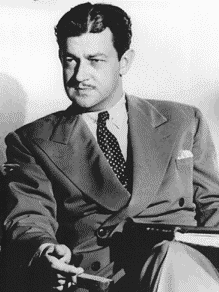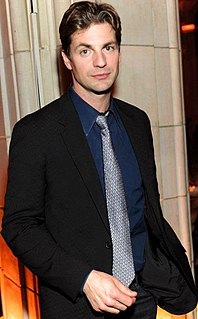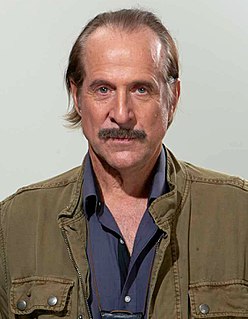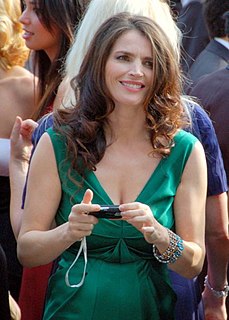A Quote by Preston Sturges
The hook is a word or an idea spoken by one character which gives the next character something to hook onto when he responds or, like a trapeze artist, gives him something to swing from on his way to another point of view.
Related Quotes
There is a strange idea aboard, held by all monetary cranks, that credit is something a banker gives to a man. Credit, on the contrary, is something a man already has. He has it, perhaps, because he already has marketable assets of a greater cash value than the loan for which he is asking. Or he has it because his character and past record have earned it. He brings it into the bank with him. That is why the banker makes him the loan.
You're always choosing the start point and the end point. And almost by definition, the most interesting period is where something happens, as a result of which something is different at the end. And so to me, the idea that you know everything about a character at the beginning is sort of ridiculous. Something has to be revealed. I like it when the deeper you go with the character, the more you see the layers start to peel away. It's more challenging to me, but it's also just interesting. Those are the things I like to watch. I like to watch the evolutions of something.
Brian is an archetypal character, a bit like Don Juan, which is how I play him. He's a blast to play. He believes unapologetically in his freedom. He holds nothing back. Something I'm learning is, you can't hate the character you play. If I think my character is an asshole, that's all that will come across. He is drawn in an extreme way, but that doesn't mean he's not a person.
When you are writing, you have to love all your characters. If you're writing something from a minor character's point of view, you really need to stop and say the purpose of this character isn't to be somebody's sidekick or to come in and put the horse in the stable. The purpose of this character is you're getting a little window into that character's life and that character's day. You have to write them as if they're not a minor character, because they do have their own things going on.
For long the two enemies looked at one another, Hook shuddering slightly, and Peter with the strange smile upon his face. "So, Pan," said Hook at last, "this is all your doing." "Ay, James Hook," came the stern answer, "it is all my doing." "Proud and insolent youth," said Hook, "prepare to meet thy doom." "Dark and sinister man,“For long the two enemies looked at one another, Hook shuddering slightly, and Peter with the strange smile upon his face. "Dark and sinister man," Peter answered, "have at thee.
I don't get particularly precious about things like this, though. Like the record company said, "We need a radio edit that delivers the hook" - I don't even know what they consider the hook in that song ["Oh No"] - "that delivers the hook sooner." So I'm like, "Okay. I see that." And they were all walking on eggshells, like is this going to be sacrilegious to me or something, to mess with this art I've created? And I'm like, "Great. I get to tinker with it, I get to mess with my song some more."
But there are people who take salt with their coffee. They say it gives a tang, a savour, which is peculiar and fascinating. In the same way there are certain places, surrounded by a halo of romance, to which the inevitable disillusionment you experience on seeing them gives a singular spice. You had expected something wholly beautiful and you get an impression which is infinitely more complicated than any that beauty can give you. It is the weakness in the character of a great man which may make him less admirable but certainly more interesting. Nothing had prepared me for Honolulu.
She would be quiet at first. Then she would say a word about something small, something she had noticed, and then another word, and another, each one flung out like a little piece of sand, one from this direction, another form behind, more and more, until his looks, his character, his soul would have eroded away . . . I was afraid that some unseen speck of truth would fly into my eye, blur what I was seeing and transform him from the divine man I thought he was into someone quite mundane, mortally wounded with tiresome habits and irritating imperfections.
Whatever character you play, whatever film it is, whatever story it is, for me, in my training it's always something that gives you a layered character, it's understanding the secret of that character, and so whatever comes up as "Oh, I thought that person was that," you are always carrying that within you. So actually what you're playing all the way through is both and it's just what comes out in the scene or the circumstance.
I love actors. I enjoy their company, and I get excited each and every time they bring a character I've written to life. Every so often a talented actor doesn't hook in correctly to a character; or someone gets lost in a labyrinth of over-complicated thoughts, and the character and play suffer. However, most of the time I find actors either end up doing exactly what was in my head, or sometimes do something even better.
Anglers have a way of romanticizing their battles with fish and of forgetting that the fish has a hook in his mouth, his gullet, or his belly and that his gameness is really an extreme of panic in which he runs, leaps, and pulls to get away until he dies. It would seem to be enough advantage to the angler that the fish has the hook in his mouth rather than the angler.
A text makes the word more specific. It really kind of defines it within the context in which it is being used. If it is just taken out of a context and presented as a sort of object, which is what - you know, which is a contemporary art idea, you know. It is like an old surrealist idea or an old cubist idea to take something out of context and put it in a completely different context. And it sort of gives it a different meaning and creates another world, another kind of world in which we enter.






































